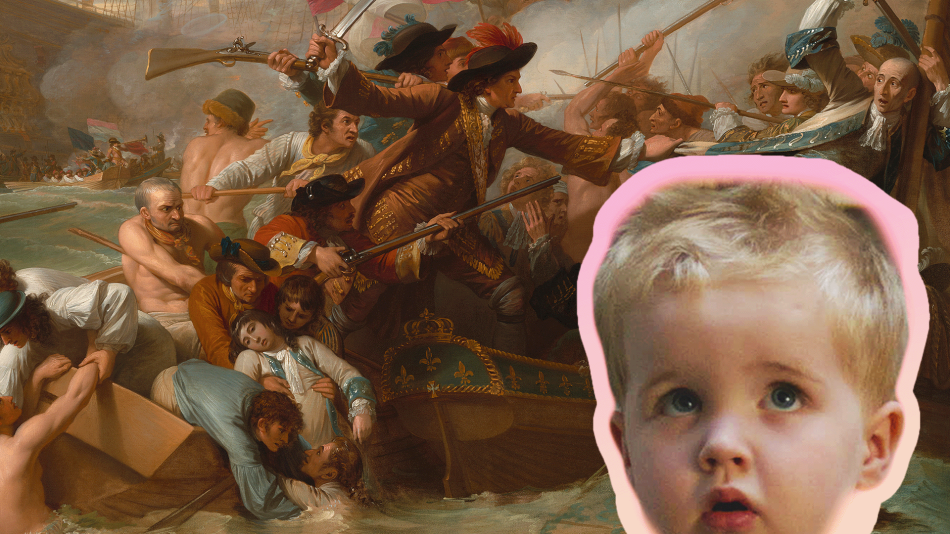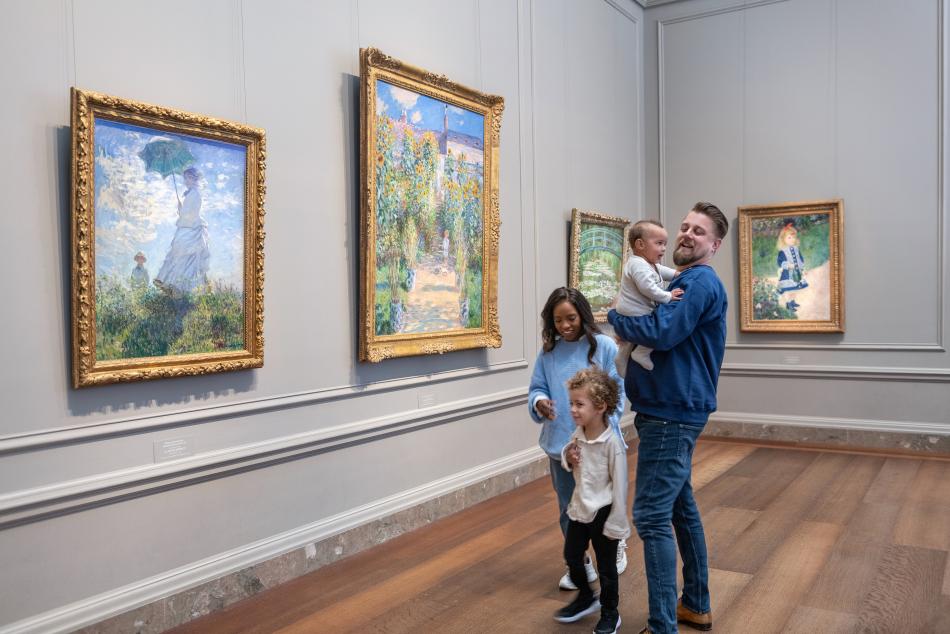Oedipus Cursing His Son Polynices
1786
Henry Fuseli
Artist, Swiss, 1741 - 1825

Fuseli, a native of Switzerland, began his career in England as a history painter. He developed an expressionistic style composed of a unique blend of influences—German romanticism, the monumental vision of Michelangelo, and the physical and psychological exaggerations of the 16th–century Italian mannerists.
Fuseli's own pessimism and fascination with the extremes of human passion are evident. He heightened the intensity of this scene from Sophocles' Oedipus at Colonus by placing Oedipus and his children in a dark, shallow space. The tragedy of the father's curse is played out through the gestures of the four figures. Polynices, who had expelled his blind father from Thebes and left him to live as a beggar, has come to ask his father's support in overthrowing his brother. Oedipus, enraged at his son's request, stretches out his accusing arms and levies his dreadful curse, by which each son would die at the hands of the other. Ismene, weak and despairing, kneels with her head on her father's knee. Antigone, whose strength and determination have kept her father alive, is highlighted above the terrible drama as she reaches out to protect her brother with one hand and restrain Oedipus with the other. Her gesture, however heroic, is futile.
More information on this painting can be found in the Gallery publication British Paintings of the Sixteenth through Nineteenth Centuries, which is available as a free PDF https://www.nga.gov/content/dam/ngaweb/research/publications/pdfs/british-paintings-16th-19th-centuries.pdf

West Building Main Floor, Gallery 61
Artwork overview
-
Medium
oil on canvas
-
Credit Line
-
Dimensions
overall: 149.8 x 165.4 cm (59 x 65 1/8 in.)
framed: 177.2 x 191.8 x 12.3 cm (69 3/4 x 75 1/2 x 4 13/16 in.) -
Accession Number
1983.1.41
More About this Artwork

Video: What Do Kids REALLY Think About Art?
Sharp, hilarious, brutally honest kids react to some of our most iconic works.
Artwork history & notes
Provenance
Sold October 1791 by the artist to William Roscoe. (sale, Liverpool, 28 September 1816, no. 154, as Oedipus devotes to the Infernal Gods His Son Polynices...); purchased by Baxter.[1] (Maltzahn Gallery, London), in 1973; (Weiss Antiques, Zürich), in 1973; purchased 1974 by Paul Mellon, Upperville, Virginia; gift 1983 to NGA.
[1] Hugh Macandrew, "Henry Fuseli and William Roscoe," Liverpool Libraries, Museums and Arts Committee Bulletin 8 (1959-1960): 22-23, 35 (appendix I, no. 6), as whereabouts unknown since the Roscoe sale in 1816.
Associated Names
Exhibition History
1786
Royal Academy of Arts, London, 1786, no. 84.
1986
Gifts to the Nation: Selected Acquisitions from the Collections of Mr. and Mrs. Paul Mellon, National Gallery of Art, Washington, 1986, unnumbered checklist, repro.
Bibliography
1959
Macandrew, Hugh. "Henry Fuseli and William Roscoe." Liverpool Libraries, Museums and Arts Committee Bulletin 8 (1959-1960): 21, 22, 23, 35 (appendix 1, no. 6).
1977
Schiff, Gert and Paola Viotto. L'opera completa di Füssli. Milan, 1977: 88, no. 22, 89, repro.
1984
Walker, John. National Gallery of Art, Washington. Rev. ed. New York, 1984: 414, no. 591, color repro.
1985
European Paintings: An Illustrated Catalogue. National Gallery of Art, Washington, 1985: 161, repro.
1992
Hayes, John. British Paintings of the Sixteenth through Nineteenth Centuries. The Collections of the National Gallery of Art Systematic Catalogue. Washington, D.C., 1992: 75-80, color repro. 77.
National Gallery of Art, Washington. National Gallery of Art, Washington, 1992: 147, repro.
2004
Hand, John Oliver. National Gallery of Art: Master Paintings from the Collection. Washington and New York, 2004: 272-273, no. 220, color repro.
Wikidata ID
Q20179419

